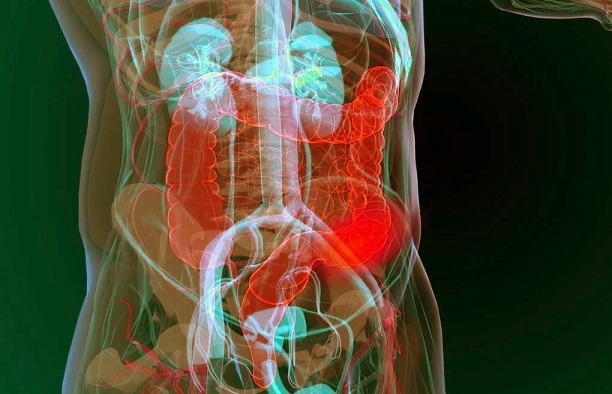Nikhil Prasad Fact checked by:Thailand Medical News Team Oct 26, 2025 3 months, 2 weeks, 5 days, 13 minutes ago
Medical News: Nerves in the Gut and Their Role in Cancer
Australian researchers have uncovered an unexpected connection between the nervous system and cancer growth in the digestive tract. A team from the Olivia Newton-John Cancer Research Institute (ONJCRI) and the La Trobe School of Cancer Medicine discovered that specific nerve-related molecules, known as neuropeptides, can significantly influence the progression of gastrointestinal cancers. These neuropeptides act as chemical messengers that communicate between nerve cells and other body tissues, affecting vital processes like digestion and cell growth. The discovery could reshape how doctors view cancer development within the gut, opening possibilities for new treatment approaches.
 Gut Nerve Signals Found to Drive Cancer Growth
Gut Nerve Signals Found to Drive Cancer Growth
The study revealed that a neuropeptide called CGRP (calcitonin gene-related peptide) and its receptor RAMP1 are key drivers of tumor growth in colorectal and stomach cancers. This
Medical News report highlights that drugs currently used to treat migraine—targeting the same CGRP and RAMP1 pathway—could be repurposed to help stop these cancers from growing. This breakthrough not only offers hope for better treatment but also shows how existing medications might be adapted for faster clinical use.
How Nerve Signals Promote Tumor Growth
Lead researcher Dr. Pavitha Parathan from ONJCRI explained that nerve fibers carrying CGRP were found within tumors, where they appear to actively promote cancer growth. Even more surprising, the tumor cells themselves were found to produce CGRP, effectively creating a feedback loop that accelerates disease progression. By removing the RAMP1 receptor in tumor cells using advanced genetic techniques, the researchers were able to dramatically reduce tumor growth.
Senior author Dr. Lisa Mielke from ONJCRI emphasized that the nervous system’s role in cancer is an exciting and largely unexplored area of study. Since migraine drugs that block CGRP are already approved and widely used, testing them for gastrointestinal cancers could move forward quickly. The team plans to include these existing drugs in upcoming clinical trials alongside standard colorectal cancer treatments.
Key Findings from the Study
The research team analyzed tissue samples from 180 patients with colorectal and gastric cancers. They found that more than half of colorectal and 60 percent of gastric tumor cells expressed RAMP1, while high RAMP1 expression was linked to reduced patient survival rates. CGRP was also found abundantly in nearby nerve fibers and, unexpectedly, in the cancer cells themselves. When tumor cells were exposed to CGRP in laboratory conditions, they began growing faster and activating genes related to cell division, energy metabolism, and movement.
A Path Toward Gentler Cancer Therapies
Dr. Parathan said the findings are significant because they uncover a new way that tumors manipulate their environment to survive and thrive. Importantly, therapies that block CGRP and RAMP1 already exist and are well-to
lerated, meaning they could provide a faster, less toxic route to treatment. The research suggests that targeting the nerve–tumor interaction could not only slow cancer progression but also reduce side effects compared to traditional chemotherapy.
The study concludes that the CGRP–RAMP1 pathway may serve as a “druggable” target for future gastrointestinal cancer treatments. By blocking the nerve signals that fuel tumor growth, doctors may soon be able to stop cancer before it spreads further. This could mark a major step forward in developing treatments that are not only more effective but also much kinder to patients.
The study findings were published in the peer-reviewed journal BMJ Oncology.
https://bmjoncology.bmj.com/content/4/1/e000842
For the latest cancer research, keep on logging to Thailand
Medical News.
Read Also:
https://www.thailandmedical.news/articles/cancer
